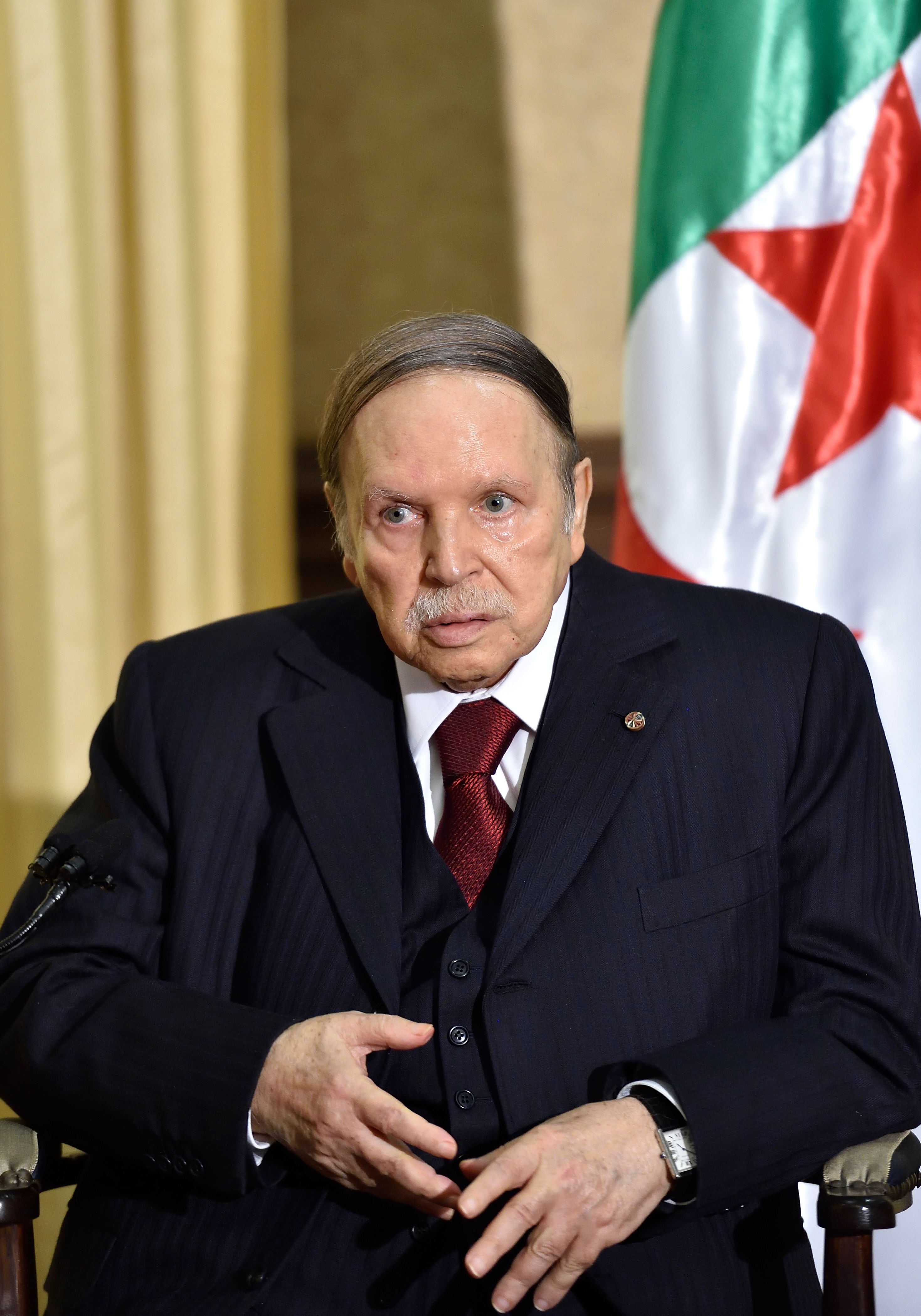Bouteflika, Abdelaziz << boot uh FLEE kuh, ahb dul ah ZEEZ >> (1937-2021), was president of Algeria from 1999 to 2019. When he became president, he inherited a country split by internal violence and spent much of his early presidency working for peace.

Bouteflika was born on March 2, 1937, in Oujda, a city in northeastern Morocco near the Algerian border. After he finished his secondary education in 1956, he joined the military wing of the Front de Libération Nationale (FLN), or National Liberation Front. The FLN was the nationalist movement that led the struggle for Algeria’s independence from France.
In July 1962, Algeria gained its independence. The FLN became the only legal political party, and Bouteflika was appointed minister of youth, sports, and tourism. In 1963, he became minister of foreign affairs. In this position, he helped Algeria become a leader of diplomacy in Africa. In June 1965, Bouteflika took part in a coup d’état (armed takeover) led by Houari Boumédienne, the army commander. Bouteflika then became a member of the ruling revolutionary council.
In December 1978, Boumédienne, who had been serving as president, died. Many observers believed Bouteflika would replace him. However, the FLN chose Colonel Chadli Bendjedid as the party’s candidate for the post, and he was elected president in 1979. From 1979 to 1980, Bouteflika was gradually expelled from the government. In 1981, he was accused of corruption. He left Algeria as a result. He returned to the country in 1987, after the government dropped the charges.
In 1989, Algeria’s government revised the country’s constitution to allow other political parties to operate. In the early 1990’s, an intense conflict began between the government and an Islamic opposition party. From 1992 to 2006, more than 150,000 people died in the fighting.
In 1999, the military supported Bouteflika as a presidential candidate. He became president in an election that was marred by charges of vote fraud. Bouteflika introduced measures that encouraged Muslim rebels to give up their arms in return for an amnesty (pardon) or lenient treatment, and violence decreased. In 2004, he was reelected as president. In 2005, Bouteflika proposed a second amnesty for Muslim rebels, which took effect in 2006. Bouteflika was reelected in 2009 and and again in 2014, despite having had a stroke that impaired his mobility and speech. In early 2019, protests broke out when he sought a fifth term in office. He resigned as president in April. Bouteflika died on Sept. 17, 2021.
